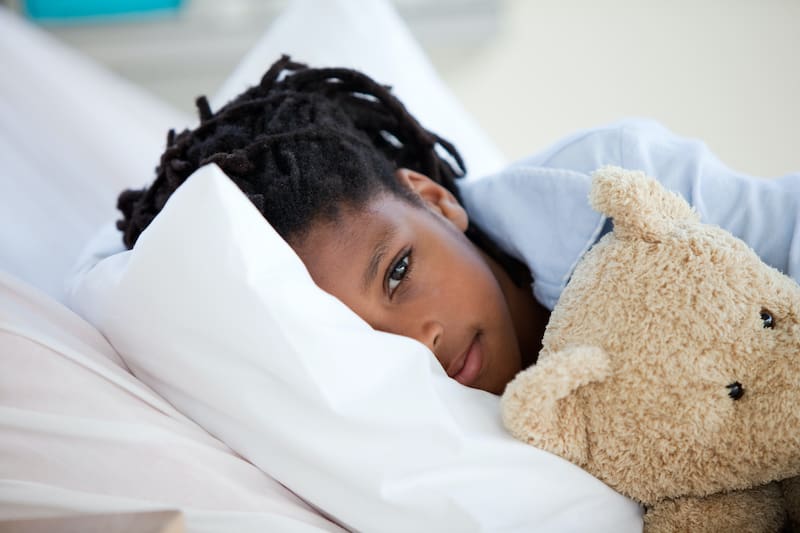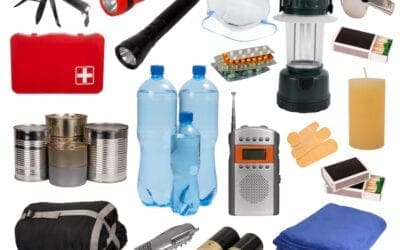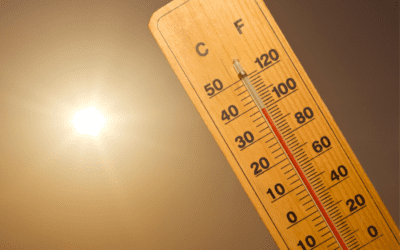How to Help Children in Emergencies

Emergency situations and disasters can leave a lasting impact on all of us, including children. If you are a child’s primary caretaker, your support can have the biggest influence on how the child recovers physically and emotionally after a disaster. Use the information below to help your children in emergencies.
9 Tips to Help Children in Emergencies
- Emergency Signals: Point out emergency signs and signals, such as when you hear a siren or see the flashing lights of an ambulance, fire truck, or police car. These signs mean that help is on the way!
- What is an Emergency? Talk with your child about emergencies in a calm way. For example, you can start by explaining that “An emergency is when something happens that we do not expect, and we have to act quickly to keep ourselves safe.”
- Whole Names: Help your child learn their whole name and the whole names of their caregivers. If you and your child ever get separated, they can share these names with trusted adults in order to reach you.
- Phone and Address: Helping your child learn your phone number and address can help reunite your family quickly in an emergency.
- Special Helpers: Help your child learn about the people who help keep us safe, like firefighters, police officers, doctors, and emergency responders, so that they are more comfortable with these individuals in an emergency.
- Create a Family Emergency Kit: Reuse an old box or bag, and let your child decorate it with drawings or stickers. Then, let your child put some of the items into the kit. This way, they will feel involved and more comfortable with emergency preparations.
- Emergency Contacts: Choose two emergency contacts. One should be an out-of-town emergency contact who can help make sure you’re all okay. The second should be a local emergency contact who can help you with tasks such as picking up your kid from daycare.
- Our Meeting Place: Select an emergency meeting place. This is the safe place where your family will meet if you cannot get home during an emergency.
- 911: Teaching children how to use 911 is critical and could save their lives (or yours). Start by explaining what 911 is. Teach them to assess the risks of the situation before dialing 911. Explain what types of situations they might need to call 911, and explain what type of information they should give once they have called. Practice scenarios with them to make them more comfortable.
Helping Kids Cope
Your child may experience an emergency as being worse than it actually is. Children’s fears can become exaggerated because of their imagination, and these feelings should be taken seriously. Your words or actions are important and can provide reassurance. It is important to present a realistic and honest picture of the situation.
During or after an emergency situation, young children may cry, whine, or wet the bed. Older children may experience fear of injury or separation anxiety. Other common reactions in children include fear of the dark, physical pain, and eating or sleeping problems. It is important to recognize these signs and address them as soon as possible.
Remember, children may react in different ways. Explain the event as best as you can, and acknowledge that what’s happening is frightening. Tell your kids how you feel and what you are thinking, as this will help them feel less alone – especially if they feel similarly to you. If children still exhibit feelings of fear, anxiety, or concern after an extended period of time, professional help might be needed to help the child cope and understand their emotions better.
For more information on helping kids in emergencies, follow the links below:
Archives
- February 2026 (1)
- December 2025 (1)
- November 2025 (2)
- September 2025 (1)
- July 2025 (2)
- June 2025 (3)
- April 2025 (2)
- January 2025 (2)
- December 2024 (1)
- September 2024 (2)
- August 2024 (2)
- July 2024 (1)
- June 2024 (1)
- February 2024 (1)
- July 2023 (1)
- March 2023 (1)
- October 2022 (1)
- September 2022 (1)
- August 2022 (1)
- July 2022 (2)
- June 2022 (2)
- May 2022 (1)
- April 2022 (4)
- March 2022 (1)
- February 2022 (1)
- January 2022 (1)
- December 2021 (4)
- November 2021 (3)
- September 2021 (2)
- August 2021 (3)
- July 2021 (2)
- June 2021 (1)
- May 2021 (2)
- March 2021 (1)
- December 2020 (6)
- November 2020 (8)
- October 2020 (4)
- September 2020 (7)
- August 2020 (3)
- July 2020 (11)
- May 2020 (2)
- April 2020 (4)
- March 2020 (1)
Categories
- Communicable Disease (5)
- Clinical Services (19)
- Clinical Servcies (1)
- Health Promotions (74)
- Emergency Preparedness (8)





